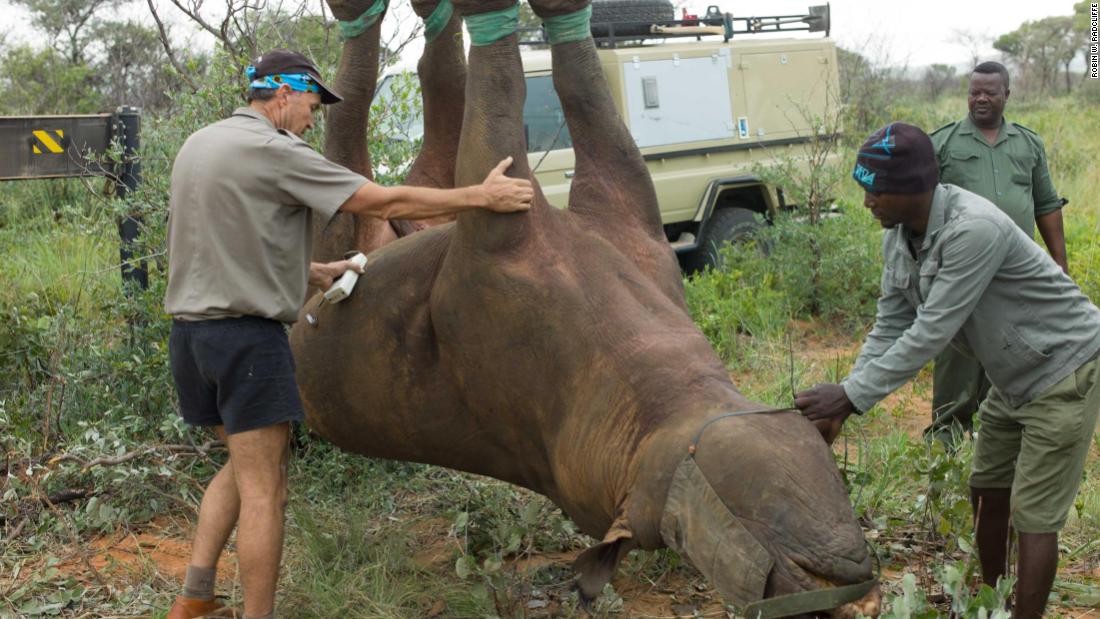
The recognition of the parody takes its name, but is not related, to the world-famous Nobel Prize.
He honors curious and “imaginative” discoveries and, like the original, has his own popular followers.
The winning team of researchers, from Namibia, South Africa, Tanzania, Zimbabwe, Brazil, the United Kingdom and the United States, were trying to see if rhinos could be transported more safely when they took off if they were suspended in the reverse.
As part of the experiment, led by Robin Radcliffe, a professor of wildlife medicine and conservation at Cornell University, the team sedated 12 black rhinos in Namibia with aerial darts, tied their legs and suspend. They then measured their biomarkers for respiration and ventilation.
Although the research method may seem strange, the findings of the experiment had important implications for conservation efforts.
An important discovery for conservation
Rhinos often move, usually by road, but sometimes by air, around different parts of the African savannah to ensure that the species maintains a diverse genetic reserve.
Conservationists have been using helicopters to move sedated rhinos over inaccessible terrain for about a decade, either by placing a stretcher attached to the plane next to them or hanging them upside down by the legs.
But until now little was known about which method of transport was best for the welfare of rhinos.
Speaking to CNN about the experiment earlier this year, Radcliffe, the lead investigator, said the team had assumed that rhinos hanging down in traffic would be worse for their well-being and were surprised at knowing that the opposite was true.
Rhinos were found to have higher levels of oxygen in the blood when they were suspended upside down.
“We were anticipating that rhinos would get worse hanging upside down,” he said at the time.
Other scientists honored this year included a group of researchers who examined bacteria living with rejected chewing gum on sidewalks, and researchers who discovered orgasms can eliminate nasal congestion in humans.
Last year the Ig Nobel Prize was awarded to a team of Austrian and Japanese scientists who put an alligator in a box full of helium and made it sound.
Another experiment, which found that narcissists can be identified by their eyebrows, was also rewarded.
CNN’s Rebecca Cairns and Rob Picheta contributed to this report.